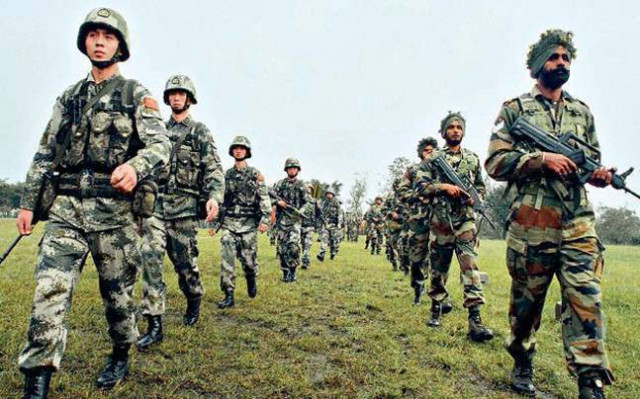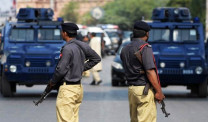China, India agree not to send more troops to Ladakh border
Both sides agreed to 'refrain from unilaterally changing the situation on the ground,' reads official statement

China and India have agreed to stop sending more troops to a Himalayan flashpoint along their contested border and to avoid any actions that might complicate the tense situation there, the two countries said on Tuesday.
Senior military officials from the both countries met on Monday and exchanged ideas on their contested border, Chinese defence ministry spokesperson Wu Qian said.
A joint press release issued by the Indian government in New Delhi said that both sides had agreed to “avoid misunderstandings and misjudgments”, and “refrain from unilaterally changing the situation on the ground.”
“The two sides also agreed to hold the 7th round of Military Commander-Level Meeting as soon as possible,” the statement said.
Thousands of Indian and Chinese troops are currently amassed along a disputed stretch of border in the Ladakh region, bordering Tibet.
After weeks of tensions, a stand-off in the remote western Himalayan region erupted into a bloody hand-to-hand clash in June in which 20 Indian soldiers were killed and China suffered an unspecified number of casualties.
Both countries have since said they are attempting to resolve the situation through diplomatic and military channels but talks appeared to have made little head-way so far.
Tensions remains high, with Indian and Chinese troops separated by only a few hundred meters in some areas and both sides bringing up reinforcements and supplies.
China and India said on Sept 11 that they had agreed to de-escalate the situation and restore “peace and tranquillity” following a high-level diplomatic meeting in Moscow.
Both sides agreed at the time that troops from both sides should quickly disengage and ease tensions.
The nuclear-armed neighbours have not been able to agree on their 3,488-km-long border, despite several rounds of talks over the years.
The two countries fought a brief but bloody border war in 1962 and distrust has occasionally led to flare-ups ever since.



















COMMENTS
Comments are moderated and generally will be posted if they are on-topic and not abusive.
For more information, please see our Comments FAQ